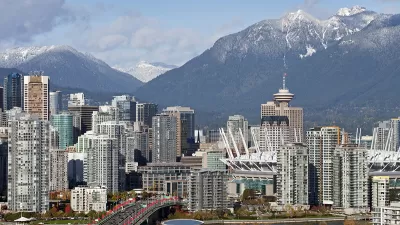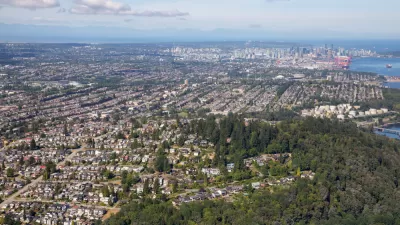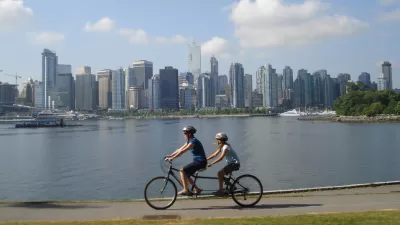The decision to rezone most of Vancouver to allow for duplexes could have consequences in this weekend's municipal election.

Elizabeth Murphy, a former property development officer for the City of Vancouver and for B.C. Housing, has penned an op-ed for the Vancouver Sun sounding an alarm about what she sees as a decade of the city forsaking Jane Jacobs in favor of Robert Moses.
The most recent example of Moses-like destruction of historic buildings in favor of new, dense development, is the city's recent rezoning to allow duplexes in 99 percent of the city.
There are a number of residential zones that allow new development with provisions that moderate demolitions and have demonstrated they keep this balance in check. These are called RT zones that are in parts of Kitsilano, Mt. Pleasant and Strathcona. These use incentives to retain and adaptively reuse existing character buildings, with disincentives to demolish, while allowing new development where appropriate.
These same principles can be used to create duplexes on a conditional basis rather than the outright duplexes that have just been approved citywide. The details of how a zone is crafted makes all the difference in terms of what the results would be.
The fact that the city chose not to use a more incremental approach, as suggested by Murphy, is called a "lost opportunity and a tragic mistake."
This discussion about recent zoning changes, along with additional discussion about the effects of the city's public transit projects, gives way to a call to action for citizens to vote according to their opinion of the Vancouver City Council's track record on matters of land use:
When deciding how to vote in the Oct. 20 civic election, look closely at how the current council has voted on the most recent citywide rezoning, as mentioned above, and vote accordingly. Greens and NPA voted against the rezoning, while Vision and Bremner (Yes Vancouver) voted for it.
FULL STORY: Elizabeth Murphy: Vancouver voters need to think about the city they want before they vote

Alabama: Trump Terminates Settlements for Black Communities Harmed By Raw Sewage
Trump deemed the landmark civil rights agreement “illegal DEI and environmental justice policy.”

Planetizen Federal Action Tracker
A weekly monitor of how Trump’s orders and actions are impacting planners and planning in America.

The 120 Year Old Tiny Home Villages That Sheltered San Francisco’s Earthquake Refugees
More than a century ago, San Francisco mobilized to house thousands of residents displaced by the 1906 earthquake. Could their strategy offer a model for the present?

In Both Crashes and Crime, Public Transportation is Far Safer than Driving
Contrary to popular assumptions, public transportation has far lower crash and crime rates than automobile travel. For safer communities, improve and encourage transit travel.

Report: Zoning Reforms Should Complement Nashville’s Ambitious Transit Plan
Without reform, restrictive zoning codes will limit the impact of the city’s planned transit expansion and could exclude some of the residents who depend on transit the most.

Judge Orders Release of Frozen IRA, IIJA Funding
The decision is a victory for environmental groups who charged that freezing funds for critical infrastructure and disaster response programs caused “real and irreparable harm” to communities.
Urban Design for Planners 1: Software Tools
This six-course series explores essential urban design concepts using open source software and equips planners with the tools they need to participate fully in the urban design process.
Planning for Universal Design
Learn the tools for implementing Universal Design in planning regulations.
Clanton & Associates, Inc.
Jessamine County Fiscal Court
Institute for Housing and Urban Development Studies (IHS)
City of Grandview
Harvard GSD Executive Education
Toledo-Lucas County Plan Commissions
Salt Lake City
NYU Wagner Graduate School of Public Service





























